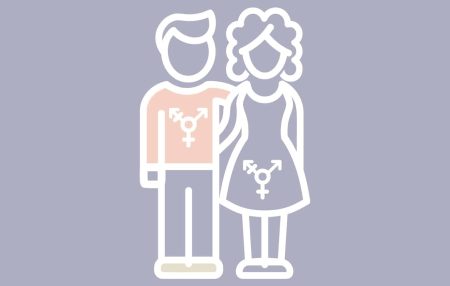31 March 2025
On 23 March 2025 came news reports that genetic testing firm 23andMe has filed for bankruptcy following financial difficulties and concerns about data privacy. 23andMe started in 2006 and went public in 2021. However, it never made a profit. It struggled to convert customers who purchased its core product, an at-home DNA testing kit, into subscribers offering personalised feedback and wellness plans. In 2023, 23andMe was hacked affecting the personal data of 7 million users, resulting in a reported $30 million settlement bill. Then in 2024, it let go of forty percent of its workforce and stopped the development of its research and development programmes. Its recent decision to file for bankruptcy is aimed at procuring a sale. However, it leaves its 15 million users around the world questioning what will happen to their genetic data?
What attracted users to register their genetic data with 23andMe?
Genetic testing company 23andMe garnered 15 million users worldwide, offering direct-to-consumer DNA saliva test kits that proved popular for people wanting to learn more about their personal ancestry, identify and trace genetic relatives, build family trees and obtain personal insights about their health. However, this was not without difficulties for users who all too often unwittingly found themselves caught up in complex situations when test results uncovered secret love affairs and infidelity, unknown relatives, IVF mix-ups, fertility fraud, donor conception and adoption. The ripple effect of this could be widespread, impacting users’ families too including spouses, partners, children, aunts, uncles, cousins and siblings. As such, direct-to-consumer DNA tests like the ones offered by 23andMe have never been risk free with the prospect that unexpected results could undermine trust in loved ones and family relationships, change established family history, overwhelm people and create uncertainty. Added to this, they can give rise to complex legal issues when individuals then seek to rectify their birth certificate to add or remove a parent’s details and correct their birth registration to stabilise their personal identity, claim foreign citizenship or help support an inheritance claim.
Why is my personal genetic data important and should I be concerned about what happens to it?
But this is not the full picture and the issues and risks associated with 23andMe’s decision to file for bankruptcy and procure a sale go even deeper. Whoever buys 23andMe will own all of its users’ data, prompting data privacy lawyers and two US state attorney generals to recently urge users to delete their genetic data. An individual’s genetic data reveals all sorts of personal information about them including: unique biometric data, familial (genetic) relationships now and into the future and even the types of food they like. 23andMe also offers its users the option to learn about their personal health dispositions and their likelihood of developing certain genetic diseases (e.g. Type 2 diabetes or celiac disease). This sort of personal genetic information can be combined with clinical data to seek to make more accurate diagnosis about disease and health risks. As such, users’ genetic data is very valuable and it can be used for a range of purposes including scientific and medical research, personalised medicine, advertising and law enforcement. Whilst 23andMe says that any buyer must comply with laws about handling users’ data, it is not yet clear what will happen in practice.
Added to this, an individual’s personal genetic information does not have a limited shelf life. This means it can be used for a range of different purposes not just now but well into the future as well. As scientific and technological developments become even more advanced over time, 23andMe’s database of personal genetic information will likely become even more valuable. If there is insufficient regulation and oversight in place, there are ongoing risks that personal genetic data could be used for nefarious purposes including: personal profiling, exploitation and coercion, surveillance, curtailing human rights and even biological attacks or warfare. These sorts of risks could well prove to be even more problematic for individuals in the military, defence or security services moving forward.
Given 23andMe’s financial difficulties, it is therefore not surprising that the attorney general of California recently suggested that 23andMe users should delete their accounts and request that their genetic samples are destroyed and withdraw their consent for third parties to use their data. The attorney general of Kansas has also recently issued a similar warning seeking to protect Kansans’ personal information and genetic data.
Need Advisory, Consultancy, a Fertility or Family Lawyer?
Direct-to-consumer DNA testing can therefore create all sorts of issues and questions and these are not just limited to data privacy. They can encompass complex issues about an individual’s parentage, family history and relationships and/or their birth certificate.This can in turn lead to a range of family law issues that require specialist expertise including:
- Connecting with an unknown/absent parent or genetic relative (e.g. following adoption, passage of time, disconnected family history).
- Clarifying and confirming biological and/or legal parentage (e.g. following assisted conception, adoption, death of parent, lack of parental cooperation).
- Need to rectify an inaccurate birth certificate (e.g. problems with spelling of names, wrong person recorded as parent).
- Desire to add birth parent’s name to birth certificate (e.g. an individual is ‘fatherless’ with no father listed on birth certificate or following adoption).
- An application for a Declaration of Parentage in the English Family Court (e.g. to resolve legal and/or biological parentage for personal identity reasons and/or support citizenship and inheritance claims).
To find out more about an application for a Declaration of Parentage in the English Family court click here.
To read more about genomics, genetics and family law click here.
Images: Louisa Ghevaert CEO & Founder Louisa Ghevaert Associates
To find out more about Louisa Ghevaert click here.







